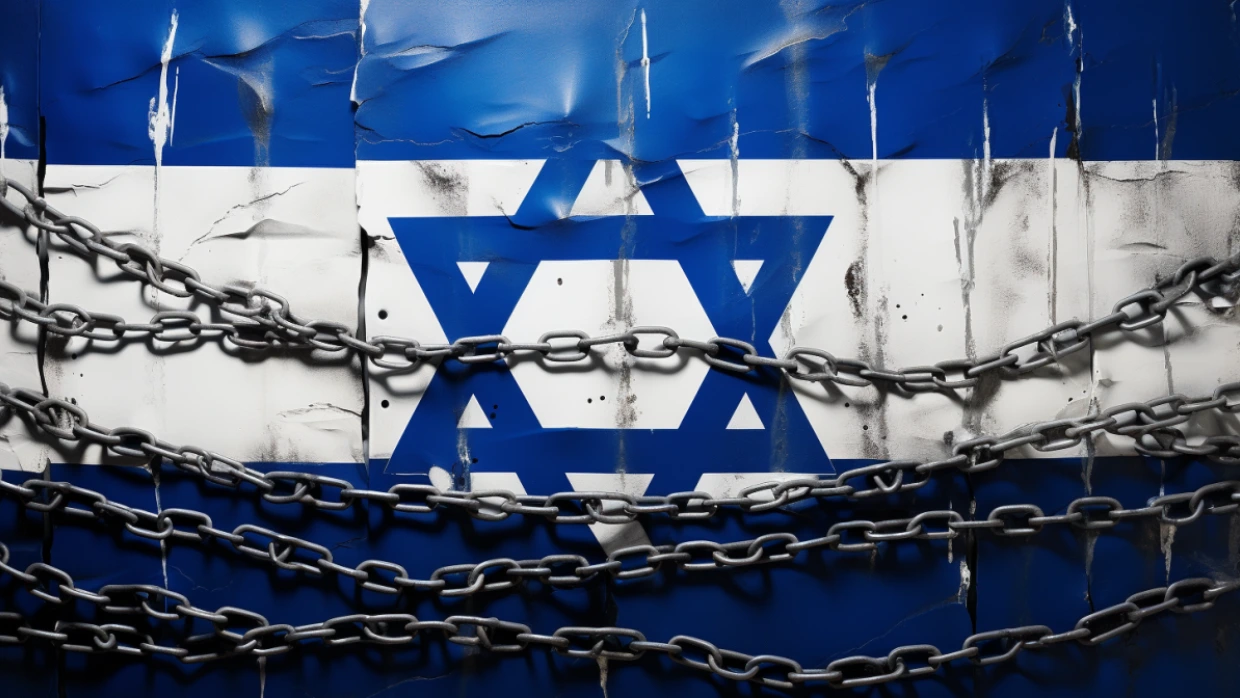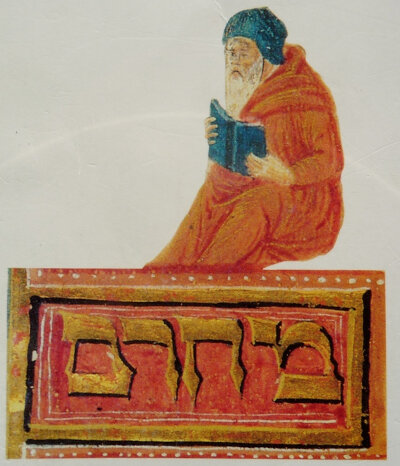 Iran’s Attack on Israel
Iran’s Attack on Israel


9 min read
How far should we go to save a life?
After a week-long ceasefire and the release of 110 Israeli hostages, Hamas broke the ceasefire and Israel resumed its war against Hamas. Still, with 137 hostages still under Hamas control, the Israeli government’s decision to negotiate with Hamas remains highly controversial and emotionally fraught. Should Israel do whatever it takes to obtain the release of the hostages, even if doing so may endanger many lives in the future? Is it morally acceptable to release three Arab terrorists in exchange for every innocent Israeli?
Any discussion of this fraught question will be informed by the remarkable story of Rabbi Meir of Rothenburg. Born in Germany around the year 1215, Rabbi Meir suffered from antisemitism throughout his life. In 1240, while Rabbi Meir was studying under the tutelage of Rabbi Jehiel of Paris, Pope Gregory IX ordered Louis IX of France to seize all Jewish texts in his realm. Though Rabbi Jehiel publicly defended the Talmud against spurious charges of blasphemy, the antisemitic French government condemned the Talmud and publicly burned 24 wagonloads of Talmudic manuscripts on June 17, 1244. Rabbi Meir, an eyewitness to this tragedy, wrote a powerful elegy describing the pain of this loss that is recited annually by Jews worldwide on the 9th of Av.
Rabbi Meir was imprisoned and held for an exorbitant ransom.
Following this tragedy, Rabbi Meir returned to Germany, where he served as the rabbi of several large communities, ultimately settling in Rothenburg. Universally acknowledged as the leading European authority on Jewish law, he established a yeshiva, at his own cost, and trained disciples who would later become the leading rabbis and scholars of Europe.
In 1286, the German ruler Rudolf I designated the Jewish community as servi camerae regis, or "serfs of the treasury," which meant Rudolf could directly tax the Jewish community on top of the heavy taxes already imposed by local nobles. Together with his family and students, Rabbi Meir decided to leave Germany and move to the Land of Israel. Tragically, as the group traveled through the mountains of Lombardy, an apostate Jew accompanying the archbishop of Mainz recognized him.
Rabbi Meir was arrested and brought back to Germany, where he was imprisoned and held for an exorbitant ransom in the fortress of Ensisheim in Alsace, by orders of King Rudolf.
 Meïr of Rothenburg – Photo from the Museum of Rothenburg
Meïr of Rothenburg – Photo from the Museum of Rothenburg
The Jewish community immediately set about raising great sums to free Rabbi Meir from captivity. But as Rabbi Solomon Luria (1510-1573) later wrote, Rabbi Meir refused to be ransomed:
“I heard about our teacher and Rabbi, Rabbi Meir of Rothenburg… who was held captive in the fortress at Ensisheim for several years, and the king demanded from the communities a preposterous ransom. The communities wished to pay but Rabbi Meir would not allow it, saying that it is not permitted to ransom captives for more than their worth. I am flabbergasted, as he was an exceptionally great Torah scholar, and there was none like him in Torah and piety in his generation, and it is permissible to ransom him for all the money in the world…
“Clearly, his opinion was that if they ransomed him, the rulers would take the greatest Torah scholar of each generation into captivity for ransom so great that the Jewish communities of the diaspora would not be able to ransom them, and the Torah would be forgotten from Israel. I also heard that the same evil ruler wanted to seize his student, [Rabbenu Asher]. He heard about this and fled to Tulitila and was saved by God’s compassion and mercy. Because of this, the pious one [Rabbi Meir] said that it is better that a little wisdom be lost from Israel than the total loss of all Torah scholarship. And this is the sign [that he was correct], that at that time they ceased seizing the sages of the diaspora.” (Yam Shel Shlomo, Tractate Gittin).
For seven years, Rabbi Meir remained a prisoner, until his death in 1293. His body was only returned to the Jewish community 14 years later when a wealthy Jew, Alexander Suskind Wimpfen of Frankfort, paid a large ransom.
If he were alive today, what would Rabbi Meir say about Israel’s hostage exchange with Hamas? Would he approve or disapprove?
Maimonides writes: “There is no greater mitzvah than redeeming captives. For a captive is among those who are hungry, thirsty, and unclothed and he is in mortal peril. And one who averts his eyes from redeeming them transgresses ‘Do not harden your heart or shut your hand,’ and ‘Do not stand idly by the blood of your neighbor,’... and nullifies the commandments of ‘You shall surely revive your brother’ and ‘You shall love your neighbor as yourself’” (Maimonides, Laws of Gifts to the Poor 8:10).
Now that some of the hostages have been freed, we know that Hamas terrorists tortured and starved them while they were in captivity. Every moment the remaining hostages spend in captivity under the control of Hamas is a danger to their lives, and they are almost certainly suffering from trauma, hunger and medical problems. Redeeming captives as quickly as possible is a matter of life and death. Surely Rabbi Meir would agree!
Nevertheless, as Rabbi Meir’s own experience shows, there are complicating factors. The sages explain that we “must not ransom captives for more than their value, for the good order of the world” (Babylonian Talmud, Gittin 45A). If Jews are willing to pay any price, no matter how exorbitant, to free their loved ones whom have been taken hostage, the enemies of our people will only be encouraged to kidnap more Jews in the future.
The people of Israel learned this truth the hard way on October 7. In 2011, Israel released 1,027 convicted terrorists in exchange for Corporal Gilad Shalit, a soldier who was kidnapped by Hamas six years earlier. Though the price was unquestionably exorbitant – 1,207 terrorists for one soldier – the deal was supported by a majority of Israelis, including 26 government ministers, who desperately wanted to bring Shalit home, at any price.
 Gilad Shalit
Gilad Shalit
As Rabbi Meir understood, a lopsided deal like the Gilad Shalit exchange only encourages antisemites to abduct more Jews. Among the terrorists released in 2011 was Yahya Sinwar, the now infamous leader of Hamas in the Gaza Strip and the mastermind of the October 7 massacre and abduction.
Though Rabbi Meir’s case is instructive, there are significant differences between his story and the current situation. During his seven-year ordeal, it does not appear that Rabbi Meir’s life was at any point in danger. The same, sadly, cannot be said of today’s hostages, several of whom have already been murdered by Hamas.
Some rabbis argue that when hostages’ lives are stake, the normal rules forbidding exorbitant ransom fees do not apply.
Some rabbis argue that when hostages’ lives are stake, the normal rules forbidding exorbitant ransom fees do not apply, for Jews are required to break almost of the rules of the Torah in order to save a life. Others, however, argue that we must not pay exorbitant fees even to save a life, for doing so will only endanger the lives of other Jews in the future.
When grappling with the demands of terrorists like Hamas, a critical distinction must be made. Whereas Rabbi Meir’s case was deeply traumatic and potentially dangerous to the Jewish community, the kidnappers were motivated by financial considerations. By contrast, Hamas is fighting a genocidal war against Israel in which the very survival of the Jewish nation is at stake. During wartime, the normal rules of redeeming captives are suspended, for any concession to the enemy is likely to be perceived as a dangerous sign of weakness.
Should Israel negotiate another ceasefire with Hamas to release more hostages? It’s hard to imagine a more painful dilemma.
When the Canaanite king of Arad attacked the Israelites as they wandered through the wilderness, his armies took captives from Israel. The rabbis explain that only one prisoner, a handmaid, was taken prisoner. Nevertheless, Moses did not enter into negotiations for her release. Instead, the people went to war and freed the hostage by destroying the enemy.
On September 6, 1970, the Popular Front for the Liberation of Palestine (PFLP), a Palestinian terrorist organization, hijacked a TWA flight with 310 passengers. The non-Jewish passengers were freed, but the terrorists held 56 Jewish passengers in custody, including Rabbi Yitzchak Hutner, one of the great rabbis of the generation. As the drama played out, some rabbis argued that due to Rabbi Hutner’s unique status, the hostages should be redeemed even at an exorbitant price.
 Hijacking of TWA plane by Popular Front for the Liberation of Palestine
Hijacking of TWA plane by Popular Front for the Liberation of Palestine
But Rabbi Yaakov Kamenetsky (1891-1986) disagreed, arguing that the standard rules of redeeming captives only apply during a time of peace. During a time of war, he asserted, it is forbidden to redeem hostages for financial payments, for doing so actively assists and strengthens the enemy that is trying to destroy the Jewish people.
In the deal with Hamas, Israel was required to allow large amounts of “humanitarian aid” to enter Gaza which was soon confiscated by Hamas terrorists. Will these supplies assist and strengthen Hamas in their genocidal war against Israel and endanger the lives of Israeli soldiers? Though we cannot answer with certainty, the answer is likely yes.
Should Israel negotiate another ceasefire with Hamas to release more hostages? It’s hard to imagine a more painful dilemma. May God give Prime Minister Netanyahu and the Israeli government the wisdom and strength to choose correctly, and may all of the hostages soon be freed and returned to their families, in good health.

All is in the hands of our Creator. There are good reasons that Israel and the Jewish people have suffered wars, plagues, pogroms, holocausts, and continued antisemtism to this day. Instead of a land of peace, milk, and honey, we have God's wrath. October 7th was an example of God covering the eyes of Israel, allowing the horrors to occur. Just one example of G-d's reasons is found in Deuteronomy 31:16-18,
May the time come when Israel and the covenant people return to following His Torah.
"May HaShem give Prime Minister Netanyahu and the Israeli government the wisdom and strength to choose correctly, and may all of the hostages soon be freed and returned to their families, in good health." Amen! Amen!
Israel should have instituted the death penalty for all the terrorists now sitting in prison.
This is a very difficult dilemma. Of course, some say never to negotiate with anyone holding hostages but that can have grave consequences for those being held. Hamas knows they are going to be destroyed so it is difficult to understand why they would negotiate at all. My first reaction is to say don't negotiate, but when I think of those being held and their families, I can only imagine that they would want Israel to do everything possible to obtain their release. It is a difficult decision.
The best, and only way to deal with terrorist is to kill them. There should be no trading no bartering no deals until they are dead and anyone who supports them should also die. We are not playing games. This is war not tic-tac-toe. The dome of the rock should be leveled in all Israeli territory, return to Israel and live as a people with strength, fortitude, and stubbornness that we are Jew we will not die
My response is to inform the kidnappers that 10,000 Hamas fighters will die if the kidnapped are not released.
Julius Caesar's ultimate response to his kidnapper pirates should be ours. You eliminate these problems by massive retaliation. Israel is doing the right thing in Gaza. Am Yisroel Chai.
I would like to see the Israeli government consult with our two Chief Rabbis of Israel, who can convey the Torah perspective, which can inform the leaders of the government who are making these life and death decisions.
Unfortunately, the possibility of returning all of the Palestinian terrorists, numbering about 6000, has been raised, and I can hardly believe that this is being considered. I've heard of Rav Meir of Rotenberg's unique story, but in this article, it sounds like the prime concern was fearof losing Torah scholarship, since other scholars might be taken hostage as a result. This doesn't seem more compelling than the goal of preventing future kidnappings of any Jewish person.
Rav Meir was certainly a superior person who used Torah principles to decide on the correct decision even at his own expense. But I want to make clear that I've heard some religious parents of hostages who speak very nobly. One said- my son would not want to be ransomed at the expense of our war against Hamas.
Very interesting read
This discussion was mentally challenging to read. It reminded me of months of discussions in a Yeshiva in Jerusalem.
I suspect that all aspects of life revolve around a bell shaped spectum of opinion and responses. The sad fact is ultimately the decision rests with those in highest power and that decision is likely based in narscissm and the objectives of the powerful in politics and religion.
I submit that the decision in this matter is unrelated to the interesting moral arguments that you have raised.
https://jewishreviewofbooks.com/israel/15128/rabbi-ovadia-yosef-and-the-halakhot-of-hostages-part-2/
https://jewishreviewofbooks.com/contemporary-israel/14972/rabbi-ovadia-yosefs-and-the-halakhot-of-hostages-part-i/#
Rav Ovadia Yosef Z'L has a Teshuva on the topic he Paskined you do make such deals and that in a discusison at the time with R. Eliashiv, he agreed with him. I am sorry I don't have a source a heard it in a shiur.
When you have to deal with a vicious enemy who was able to capture innocent people as hostages, you have to take everything into consideration. Security, or the preserve of human life?
The terrorists of Hamas and their accomplices here, in the American colleges and press, not only demand a ceasefire, but the exchange of the hostages with all their "political prisoners". The thousands of convicted terrorists, among them many who killed innocent Israelis, women and children in bus stops, in streets, in cafes, in drive by shootings, are called political prisoners by the students of American universities, many of their professors and self-hating Jews.
Needless to say, if an agreement is reached, before the terrorists hand over the hostages, they will execute those they consider a threat.
I enjoyed the article. This is a war. It is ugly. A call for a ceasefire and negotiate for more hostages release or continue the war as is. Each decision comes with a consequence. Which consequence is easier to stomach? The humanitarian aid that is confiscated by Hamas, I would think also aids the hostages. They have no other means of getting food/ medical aid but via Hamas.
I am sitting here at the park, staring off into the lake , wondering and writing this comment.
I am wondering how the hostages are doing. Are they eating,? Are they cold? I am afraid for their lives the longer they are in captivity.
I wish the international community condemned Hamas and push for release of the hostages. I wish pressure would come from the Arab nations to condemn Hamas.
I wish those things also but the reality is very different.
One piece of ironic humour: although much of the world favours our enemies judging by the”rate of [prisoner] exchange” one Jew is worth [more than] thousands of Palestinians.
I pray for the international organizations and the western world to open their eyes and their hearts be touched with the truth that you speak.
Thank you for elucidating the complexity of our current situation.
Very well done and balanced. The government will be condemned whatever it decides.
It is easy to give an opinion, especially when you are on the sidelines. However I pray strongly that the prime minister Netanyahu find the wisdom and support to take the extreme difficult decision with respect to what to do with the hostages: accept ceasefire and risk more (soldiers) lives, or risk the lives of the hostages.
The situation is even more complex than that because civilian lives are also threatened when terrorists are released.
So, the choice is even worse than the one between Scylla and Charibdis.
(continued) Rabbi Mischel initially seems to argue that more negotiation should have been pursued, but then he reverses tack and questions the morality of releasing three Arab terrorists in exchange for every innocent Israeli. Without knowledge of the complex multilateral negotiations which involved the US State Department and the Qatari government, is it fair to question morality?